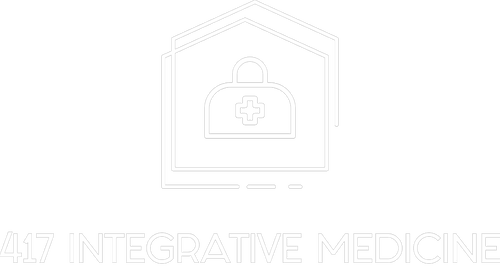Alternative Cancer Therapies That Focus on Supporting the Whole Person
.jpg)
At 417 Integrative Medicine, cancer care is not just about addressing the disease but also supporting the person behind the diagnosis. While conventional cancer treatment often targets only the illness, complementary and alternative cancer therapies consider the body, mind, and spirit together. Many cancer patients benefit from therapies that improve quality of life, reduce the side effects of cancer treatment, and give them more control during their journey.
Understanding Holistic Cancer Care in Alternative Medicine
Holistic cancer care emphasizes treating the whole person instead of focusing only on standard treatment. A complete plan often blends conventional cancer treatment like chemotherapy or radiation therapy with complementary and alternative medicine. Therapies may include nutrition, stress management, movement, and supportive care designed to help people with cancer improve overall well-being.
Cancer centers such as the National Cancer Institute, the National Center for Complementary and Integrative Health, and programs like MSK’s integrative medicine service provide evidence to support the safe use of alternative therapies alongside standard cancer treatments. These treatment options can help cancer patients live better during and after cancer.
Mind-Body Therapies for Emotional Strength
Mind-body therapies are widely used as complementary therapies in cancer care. Meditation, mindfulness, and guided imagery are types of alternative methods that reduce stress and promote emotional resilience. Many cancer survivors find that these therapies can help manage anxiety and improve sleep.
Journaling, creative outlets, or simply sharing emotions with supportive friends can also be helpful for people with cancer. Mind-body therapies can support these claims by showing improvements in quality of life during treatment.
The Role of Nutrition in Cancer Treatment
Nutrition is one of the most important complementary or alternative therapies used during cancer care. Eating a balanced diet with fruits, vegetables, whole grains, and lean protein can help cancer patients fight fatigue and support recovery.
Supplements may also be helpful for people affected by cancer when appetite loss or digestive issues are present. Consulting a dietitian ensures that therapies like dietary adjustments are safe and effective. Research shows that better cancer outcomes are often linked to proper nutrition and hydration.
Integrative Therapies That Combine Care Approaches
Integrative therapies bridge the gap between conventional medicine and alternative cancer treatments. In integrative oncology, therapies like acupuncture, massage therapy, and yoga can support patients undergoing chemotherapy or radiation therapy.
For example, acupuncture may ease nausea caused by cancer treatment, and massage therapy can reduce pain or tension. Music therapy is another supportive option, allowing patients to participate in music therapy sessions for emotional healing. These complementary and integrative therapies are used instead of conventional approaches only rarely, but when combined, they enhance cancer care and improve quality of life.
Supportive Care and Symptom Management
Supportive care is essential for many cancer patients, especially those with advanced cancer. Side effects of treatment, such as fatigue, nausea, or pain, can be managed with therapies like massage, relaxation techniques, and nutrition support.
These complementary or alternative therapies are used to make cancer treatment more tolerable, ensuring life during and after cancer is as comfortable as possible. Cancer care also includes support for families and caregivers, as they are also affected by cancer and need resources for coping.
Physical Activity and Movement as Therapy
Movement is a therapy often overlooked, but it plays a vital role in cancer prevention and recovery. Simple exercises like walking, stretching, or gentle yoga can reduce the side effects of cancer treatment and help cancer survivors maintain strength.
Even when battling symptoms during and after cancer, light activity can help fight fatigue, improve mood, and support better recovery. These types of therapies can help cancer patients live longer and experience fewer side effects of treatment.
Spiritual and Creative Therapies
Spiritual practices are another form of alternative treatment. Practices like prayer, meditation, or energy-based therapies like Reiki are used instead of conventional methods by some, but more often they are complementary or integrative.
Art and music therapy are types of complementary and alternative therapies that help people with cancer express emotions and find relief. Painting, drawing, or participating in music therapy sessions offers relaxation and joy, improving life during and after cancer treatment.
Building Community Support
Many cancer patients find that community support is just as important as medical treatments. Support groups, local organizations, or connections through a cancer institute can help patients feel less isolated. Sharing stories with cancer survivors who understand the journey can motivate and comfort those affected by cancer.
Supporting the Whole Person in Cancer Care
417 Integrative Medicine believes that cancer therapies can help patients not only treat cancer but also live with more balance, strength, and peace. By blending standard cancer treatments with complementary and alternative therapies, integrative medicine provides a complete care approach that supports the body, mind, and spirit.
If you or a loved one is exploring alternative cancer treatments and integrative options, reach out to 417 Integrative Medicine. Our team is here to guide you through evidence-based care that focuses on improving your quality of life while you fight cancer.

417 Integrative Medicine
1335 E Republic Rd D, Springfield, MO 65804
(417) 363-3900
https://www.417integrativemedicine.com/